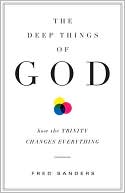Read Acts 19
Again we see the church growing at a rapid pace. In Acts 19:10 Luke states that “all the residents of Asia heard the word of the Lord, Jews and Greeks.” Is he serious? Of course, this “Asia” was a Roman province and not the same the present day continent, but still. In the span of 2 years, the message of Christ never heard before had been proclaimed throughout this province. How does this happen? Certainly there is a good deal of aggressive evangelism, friends sharing with their friends. However, Luke says very little about these things. Instead, he records that Paul taught the Scriptures and reasoned daily for two years in Ephesus (Acts 19:9), the capital of Asia. Secondly, Christians,and particularly Paul, became very well known for their extraordinary supernatural works (Acts 19:11-12). Thirdly, the church became renown for its opposition to the state cult and pagan worship (Acts 19:23-41).
Several things I observe from all this. First, Luke links the spread of the “word of the Lord” with the advancement of the church. It is not its public approval rating, which fluctuated quite drastically throughout the passage. In some ways the church was hated and in others it was loved. It was not Sunday’s attendance, though obviously that was growing. It was that the message of the gospel was being proclaimed and received. Good solid, biblical, Christ-centered teaching by Paul is at the epicenter of this Asian crusade. In other words, it is the power of the message that is transforming lives.
Secondly, Paul and the Christians reach the province of Asia by focusing upon its major metropolitan center of Ephesus. Such a strategy seems obvious, and I only mention it because we need more of this in our church today. We need people willing to go the cultural centers, the cities, and begin to proclaim the message of Christ.
Thirdly, early Christians were not known for their inclusion of other religions. They were highly exclusive, though lovingly so. Those who worshipped Christ refused to accept the dictates of Judaism or to participate in the worship of pagan gods like Artemis, and they were hated for it. They saw all those involved in such practices as needing conversion to Christ, and they strove for it with all their might. It is becoming more and more popular to say that those of other religions are not so very different from Christianity and that we should stop seeking their conversion. Instead, we should merely join hands with them in attempt to bring social aid to the world. While I’m all for helping the poor and starving and am willing to work with anyone to do it, such a view is clearly not the early Christian practice. The orthodox Christian stance has always been that there is one God, one Lord, one salvation, and it is all found in only one person, Jesus.
Subscribe to:
Post Comments (Atom)









No comments:
Post a Comment